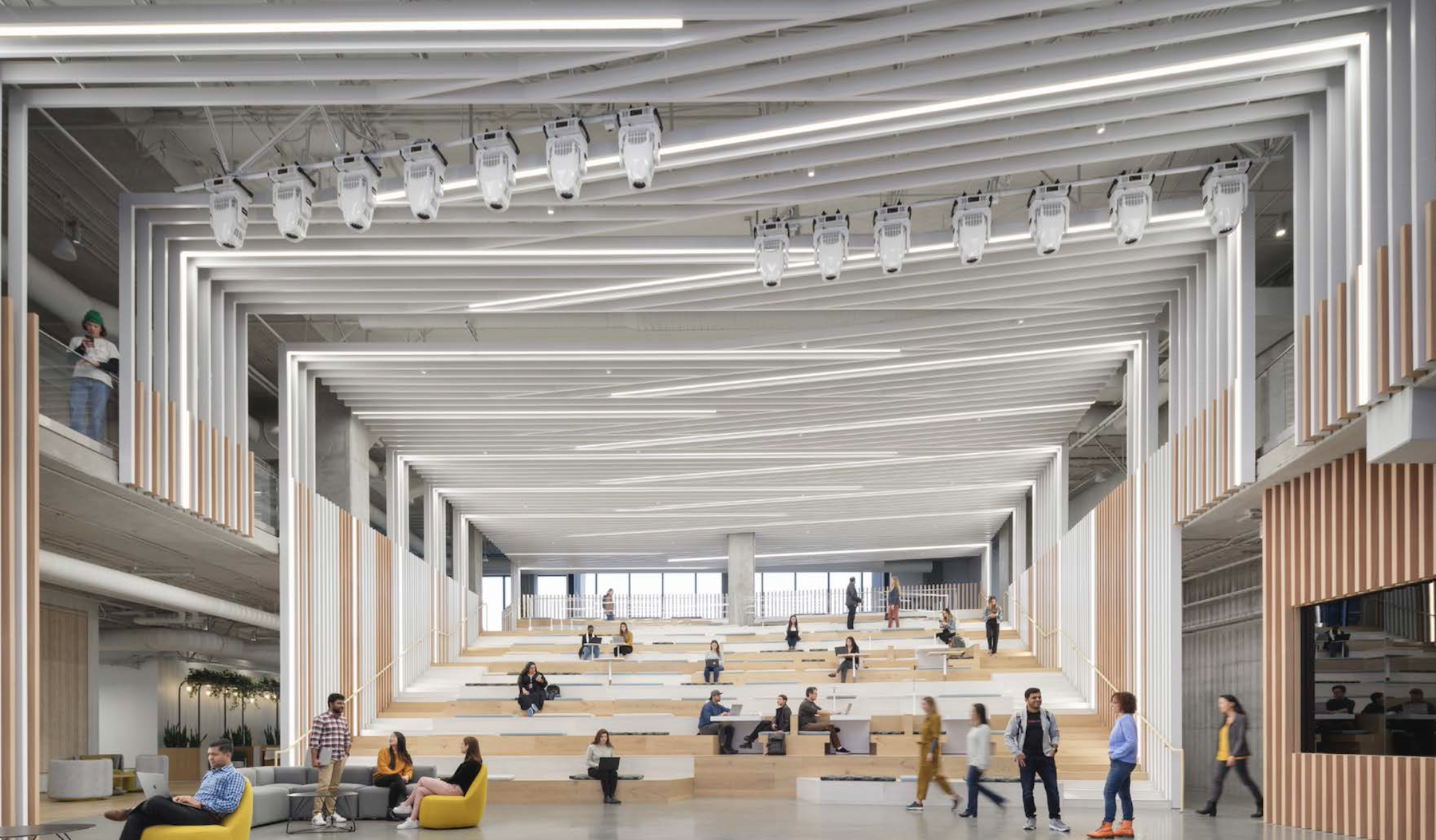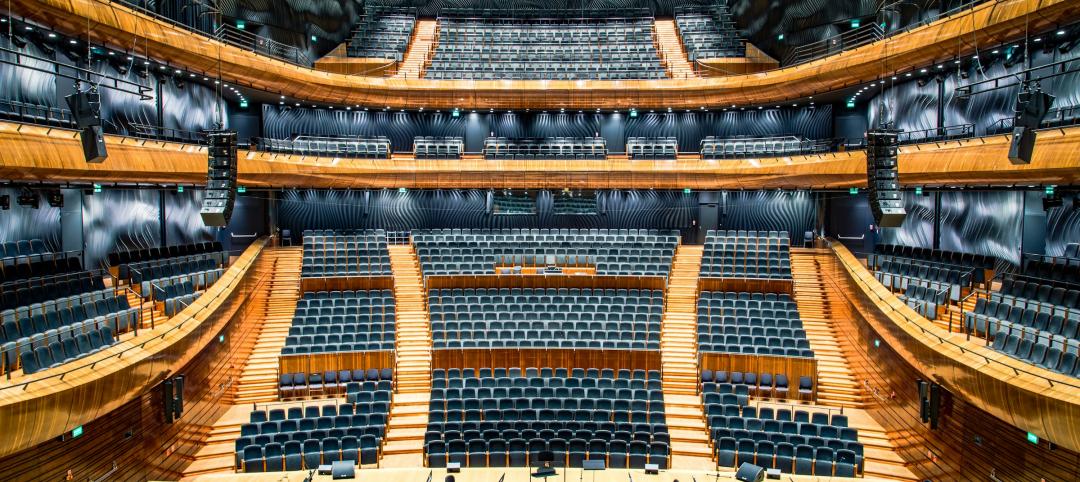The future of cities as work-live-play destinations is a focal point of Gensler’s Design Forecast 2024, which the architectural firm released earlier this month.
The 166-page report (which can be downloaded from here) draws on the extensive design work from Gensler’s practices, which in 2023 increased by four— Build to Suit & Headquarters, Entertainment, Industrial & Logistics, and Mobility & Transportation—to 33, and its 53 offices in 16 countries. Gensler summarizes its thesis when it urges the construction industry to “redesign our cities, rethink how people connect, and address mobility problems, climate change, infrastructure, and housing.”
The report lays out eight mega design trends that Gensler believes are driving significant change:
•In 2024, real estate leaders will find success reclaiming human connection with “experience multipliers”: immersive designs that inspire loyalty, boost sales, and improve vibrancy with a shared sense of and belonging.
•Office-to residential conversions and other creative repositioning will represent a new value proposition for the building industry.
•As intense weather and climate change assail the built environment, sustainable design shifts from an option to an obligation.
•Workplaces need to transform themselves into compelling destinations. As more organizations understand that the workplace landscape has permanently changed, the focus will shift less on how many people come into the office and more on what the future of work looks like to support their people’s needs.
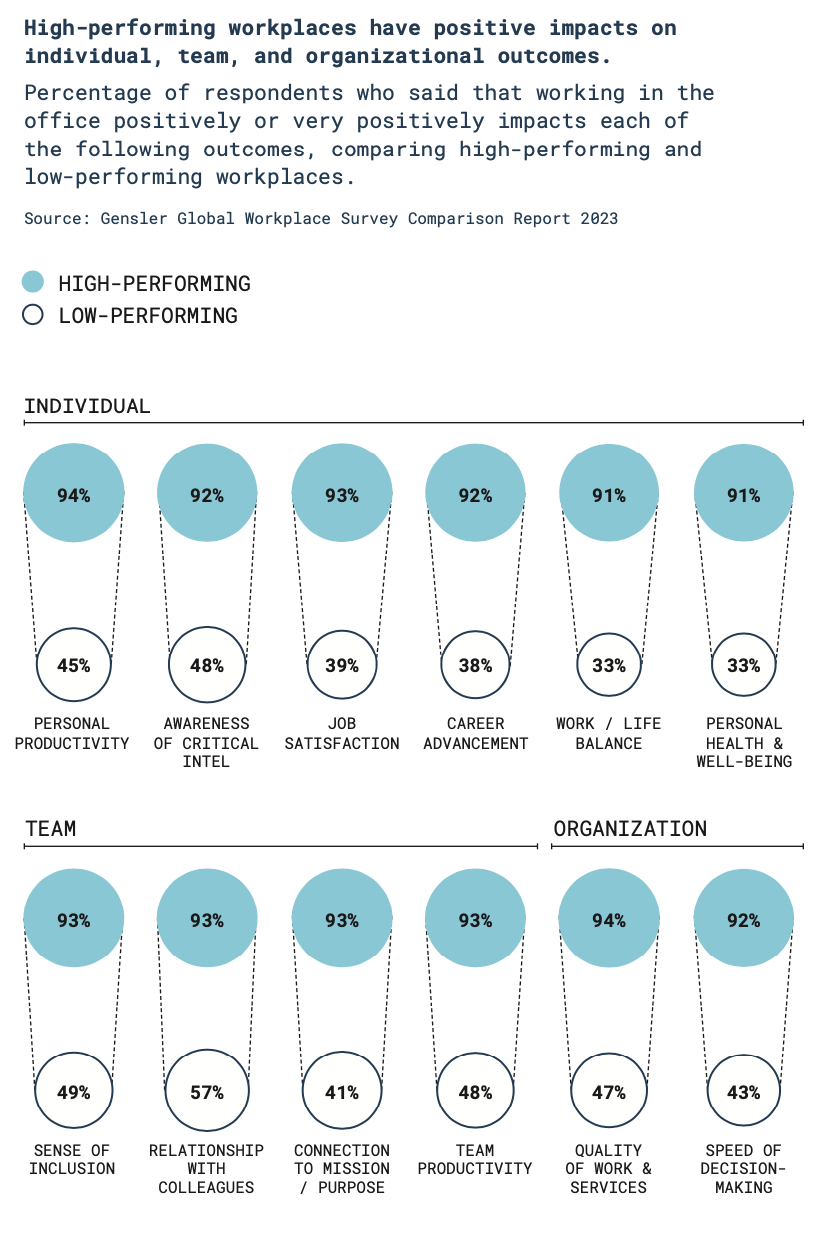
•Office-focused downtowns are a thing of the past. By prioritizing safety and mobility in new multimodal districts, cities can attract residents and tourists and bring COVID-impacted neighborhoods back to life.
•Artificial Intelligence (AI) will open the door to new ideas, new talent, and new creative opportunities. The result will produce buildings that are more sustainable, better performing and responsive to individual needs.
•There continues to be a shift toward designing ageless communities that foster accessibility and affordability.
•The advent of “20-minute cities” is making central districts more lifestyle oriented.
The report breaks down its design forecasts into four groups: Work, Cities, Lifestyle, and Health, each with multiple subsections for different building types and occupants. For example, in the section about Designing for the Future Workplace, Gensler touches on office building developers, building transportation, build-to-suit and headquarters, financial services firms, professional services firms, consumer goods companies, technology companies, energy companies, foundations/associations/organizations, product development, government and defense agencies, media companies, and strategy services.
Gensler advises developers that tenants will continue to migrate to high-quality workplaces in vibrant urban communities, and that long-term sustainability remains a priority for tenants and investors. “We must design spaces that are agile enough to endure future challenges and flexible enough to rapidly evolve with the changing demands of the workplace,” the report states.
In its section on office-to-residential conversions, Gensler notes that it had studied over 1,000 buildings in more than 120 cities, and found just under one-third of them viable conversion candidates. The firm asserts that 3.3 billion kilograms of carbon would be saved if all of those prospects were converted.
“We are in an incredible moment of change and opportunity,” wrote Kevin Heinly, Global Work Sector Co-Leader in Gensler’s San Diego office. “We need a workplace experience that provides seamless technology that better serves our communities; that is bold on resilience; and that is designed to enhance our humanity, health, and our whole selves.” Janet Pogue McLaurin, Global Work Sector Co-Leader in Washington, D.C., added that the office “is no longer assumed to be the default place to work for most employees—today’s workplace must make its case for being a better and more effective place to work. Ultimately, the future workplace must be a compelling destination where people want to be. But most important, the workplace must be an effective place to work, where individuals and teams do their best work.”
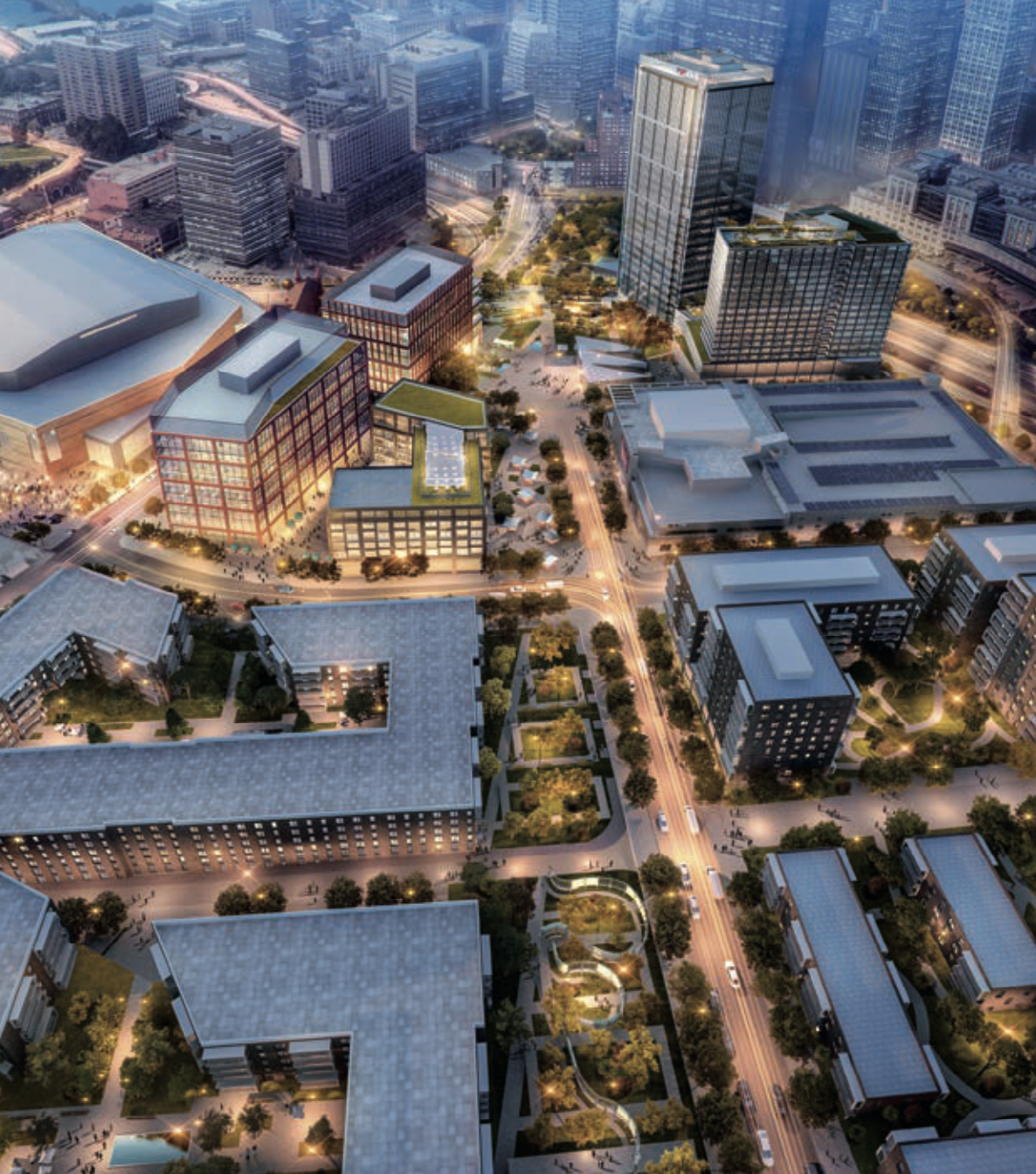
Renovation will be a key design prerogative
Gensler’s report continues in this vein, offering trends for different typologies. Some samples:
Gensler sees a rapid evolution of general urban master planning toward specialized city design that can meet blended work-life demand. The firm is confident that the chronic shortage of affordable housing can be met through strategic partnerships with nonprofit developers. And that investment in adaptation strategies will increase the profitability and desirability of urban real estate.
In Higher Education, on-campus renovations and reuse have become key development strategies. As hybrid learning becomes an expectation, institutions will find new ways to support different methods that include “hyflex” (which combines onsite and virtual instruction). The benefits of social connection and wellbeing are leading to new types of amenities.
The AI “goldrush” will drive the Mission Critical sector to new growth and designs, including sustainable options for more efficient operations. Existing data centers will be ripe for renovation.
Retailing that mixes the physical and virtual
Among the market sectors that Gensler evaluates in its Lifestyle chapter is Retail and Consumer Experience. Gensler isn’t ready yet to write off bricks-and-mortar stores, and believes that “blending, not bifurcation” from ecommerce and digitization is the formula for consumer engagement. “Hypercuration” will elevate the role of physical space.
Demand will continue for mixed-use retail developments that are anchored by sports and entertainment venues. Public spaces programmed as community catalysts will be market differentiators.
“Retail’s new purpose is wider, deeper, and more enduring than just transactions between buyers and sellers,” wrote Aaron Birney, Global Lifestyle Sector Co-Leader in Gensler’s Los Angeles office. “It’s about establishing a place, both physical and virtual, where customers feel valued and understood as part of a community. Brands are thinking about quality engagement across every outpost where they connect with their end users, including online, in store, through social media, or with a pop-up location.”
Comparatively, the digital experience will be driven by data intelligence and AI that further personalizes shopping and operational efficiency. Gensler foresees physical-digital ecosystems creating experiences in a hybrid future.
Technology will guide health sector
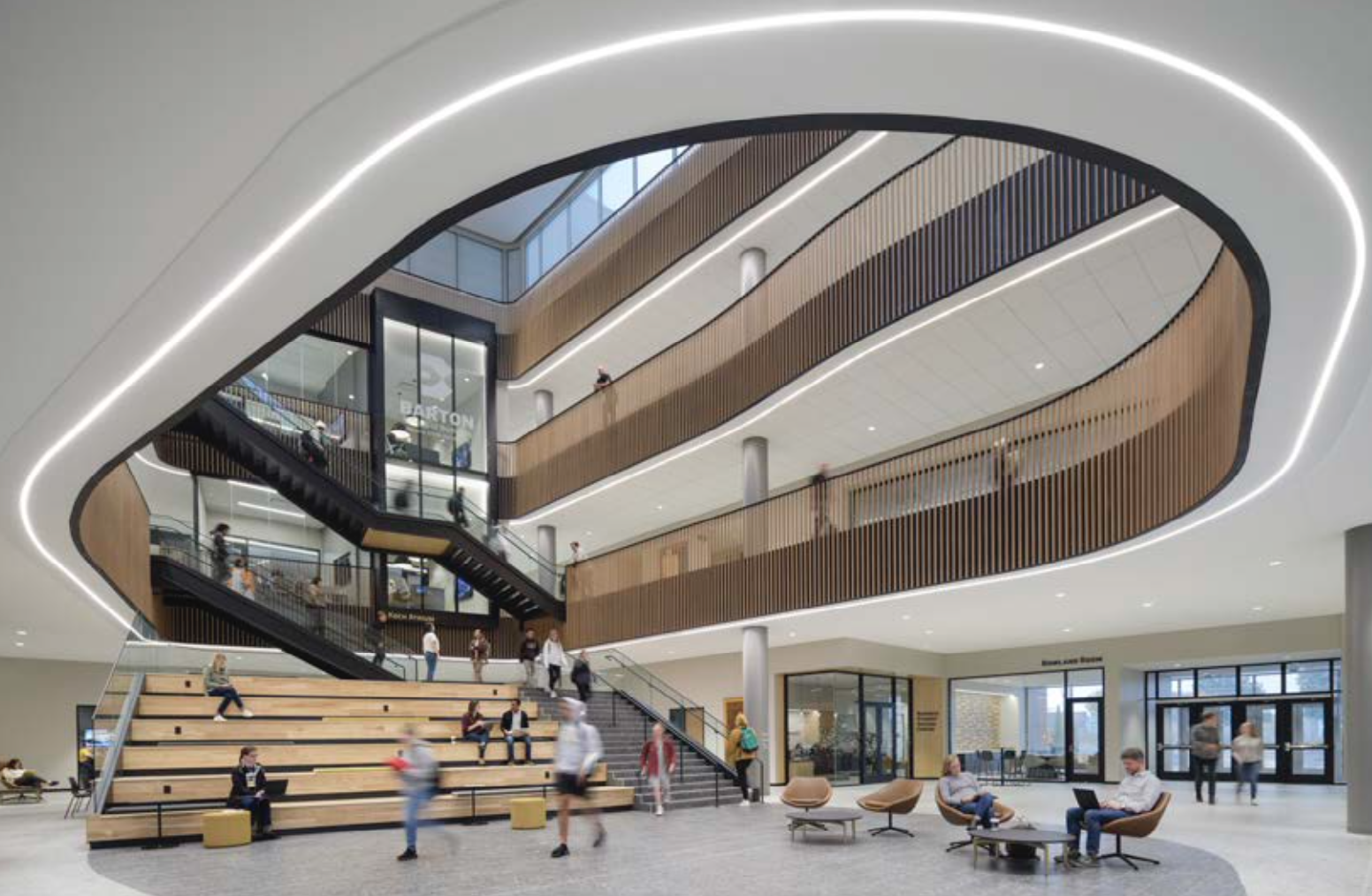
AI is also expected to play a bigger role in the Health sector and its future design. Gensler sees advances in AI, robotics, and other technologies requiring new collaborative spaces that accommodate multidisciplinary research, as well as specialized, small-scale manufacturing that can accelerate scientific innovation.
“We now stand at the precipice of the next science workplace—that amplifies how the science and tech sectors come together to capitalize on their power, not as singulars but as a convergence of forces,” said Chad Yoshinobu, Global Healthcare Sector Co-Leader in Gensler’s Seattle office.
Healthcare operators will also adopt AI to manage administrative tasks and lower the cost of care. Gensler anticipates a rise in mixed-use healthcare districts as rural hospitals continue to close, so establishing trust with those communities will be an imperative.
“Healthcare occupies an interesting place in most communities and is uniquely positioned to help heal some of the wounds and bridge divides,” wrote James Crispino, Global Healthcare Sector Co-Leader in Gensler’s New York office. “If we thoughtfully reimagine our approach to community engagement, clinical services distribution, and partnership models, we have an opportunity not only reshape outcomes but also build trust.”
Related Stories
Airports | Feb 13, 2024
New airport terminal by KPF aims to slash curb-to-gate walking time for passengers
The new Terminal A at Zayed International Airport in the United Arab Emirates features an efficient X-shape design with an average curb-to-gate walking time of just 12 minutes. The airport terminal was designed by Kohn Pedersen Fox (KPF), with Arup and Naco as engineering leads.
Higher Education | Feb 9, 2024
Disability and architecture: ADA and universal design at college campuses
To help people with disabilities feel part of the campus community, higher education institutions and architects must strive to create settings that not only adhere to but also exceed ADA guidelines.
Codes | Feb 9, 2024
Illinois releases stretch energy code for building construction
Illinois is the latest jurisdiction to release a stretch energy code that provides standards for communities to mandate more efficient building construction. St. Louis, Mo., and a few states, including California, Colorado, and Massachusetts, currently have stretch codes in place.
Giants 400 | Feb 8, 2024
Top 50 Public Library Architecture Firms for 2023
Quinn Evans, McMillan Pazdan Smith, PGAL, Skidmore, Owings & Merrill, and Gensler top BD+C's ranking of the nation's largest public library architecture and architecture/engineering (AE) firms for 2023, as reported in Building Design+Construction's 2023 Giants 400 Report.
Giants 400 | Feb 8, 2024
Top 60 Performing Arts Center and Concert Venue Architecture Firms for 2023
Populous, DLR Group, Gensler, HGA, and Perkins Eastman top BD+C's ranking of the nation's largest performing arts center and concert venue architecture and architecture/engineering (AE) firms for 2023, as reported in Building Design+Construction's 2023 Giants 400 Report.
Giants 400 | Feb 8, 2024
Top 70 Museum Architecture Firms for 2023
SmithGroup, Gensler, Ayers Saint Gross, Quinn Evans, HGA, and Cooper Robertson head BD+C's ranking of the nation's largest museum and gallery architecture and architecture/engineering (AE) firms for 2023, as reported in Building Design+Construction's 2023 Giants 400 Report.
Market Data | Feb 7, 2024
New download: BD+C's February 2024 Market Intelligence Report
Building Design+Construction's monthly Market Intelligence Report offers a snapshot of the health of the U.S. building construction industry, including the commercial, multifamily, institutional, and industrial building sectors. This report tracks the latest metrics related to construction spending, demand for design services, contractor backlogs, and material price trends.
Giants 400 | Feb 6, 2024
Top 80 Religious Facility Architecture Firms for 2023
Parkhill, FGM Architects, GFF, Gensler, and HOK top BD+C's ranking of the nation's largest religious facility architecture and architecture engineering (AE) firms for 2023, as reported in the 2023 Giants 400 Report.
Modular Building | Feb 6, 2024
Modular fire station allows for possible future reconfigurations
A fire station in Southern California leveraged prefab, modular construction for faster completion and future reconfiguration.
Giants 400 | Feb 5, 2024
Top 30 Entertainment Center, Cineplex, and Theme Park Architecture Firms for 2023
Gensler, JLL, Nelson Worldwide, AO, and Stantec top BD+C's ranking of the nation's largest entertainment center, cineplex, and theme park architecture and architecture engineering (AE) firms for 2023, as reported in the 2023 Giants 400 Report.


